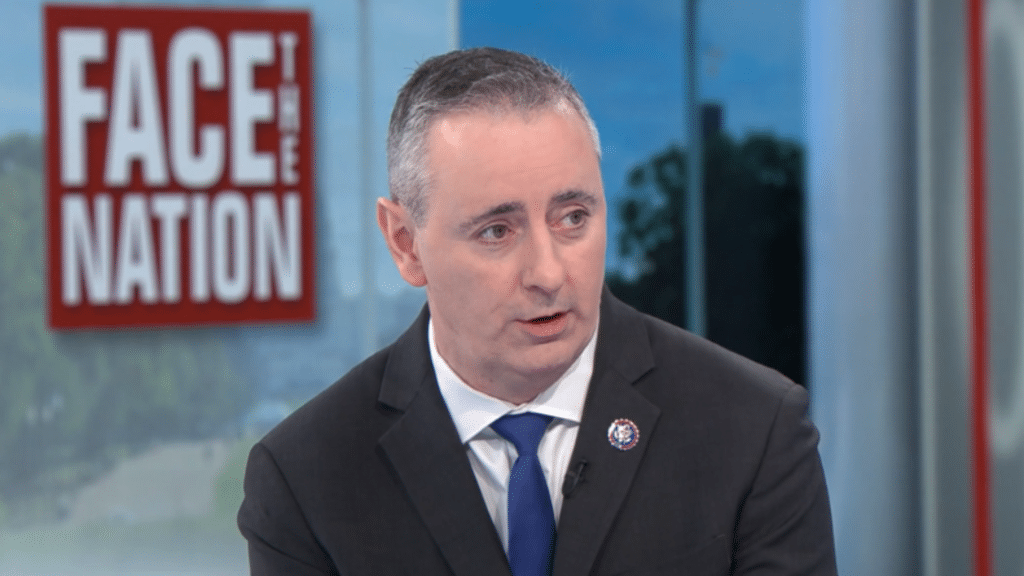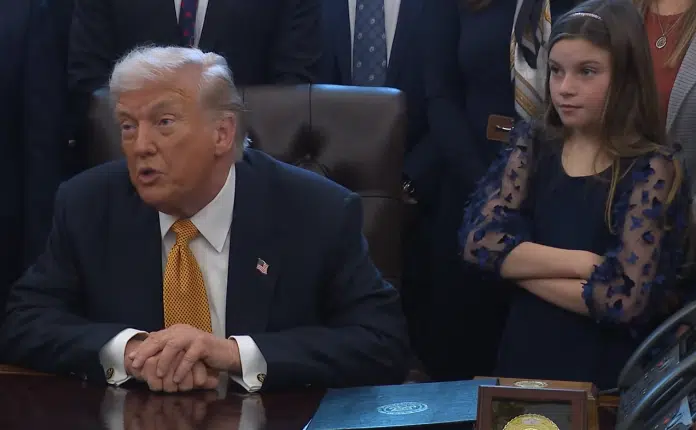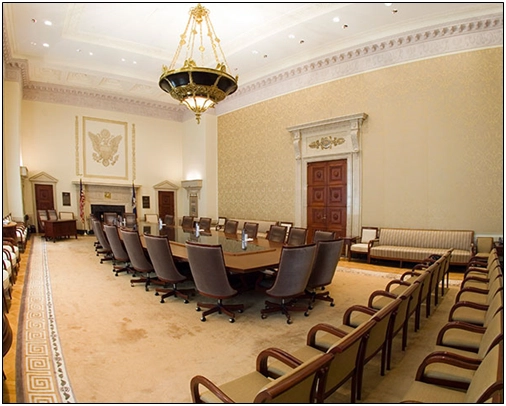
House Republican rebels led by U.S. Rep. Brian Fitzpatrick (R-Pa.) are openly discussing joining with House Democrats to sign a discharge petition to move a $90 billion foreign aid bill to the floor of the House that includes $60 billion for Ukraine before anything has been done to secure the catastrophic southern border and even before federal government funding runs out in spurts on March 1 and March 8.
Appearing on CBS’ Face The Nation on Feb. 25, Fitzpatrick outlined the maneuver to bring the Ukraine funding bill to the floor for “expedited consideration”: “We have a bipartisan bill. It’s the only one in the House. And as of Friday, we have filed with the clerk, expedited consideration. Normally, any kind of discharge like that would take 30 days to be considered right, we figured out a way with a parliamentarian to expedite that to a seven-day period.”
That was on Feb. 23, meaning the filed discharge petition for the foreign aid package could collect signatures and get to the floor as soon as March 1, provided it gets the required 218 signatures. Fitzpatrick would need to wrangle at least five other House Republicans and all 212 House Democrats to bring the measure up without the approval of House Speaker Mike Johnson (R-Ky.).
According to Chapter 19 of A Guide to the Rules, Precedents and Procedures of the House, “Under rule XV clause 2, a Member may file with the Clerk a motion (normally called a discharge petition) to discharge a committee from the consideration of a public bill or resolution that was referred to the committee 30 days prior thereto.”
It is unclear how Fitzpatrick was able to get around the 30-day requirement in House rules to generate the discharge petition, but when it comes to military funding for Ukraine, all things appear to be possible, including initiating a top secret counterintelligence investigation and using a Foreign Intelligence Surveillance Act (FISA) warrant against the Trump presidential campaign in 2016 when it was thought then candidate Donald Trump might not support the war effort there after Viktor Yanukovych was forced from power and Russia annexed Crimea in 2014, or impeaching him in 2019 when he considered impounding those funds. Wars have a way of testing norms.
At the moment, funding deadlines loom for funding the federal government on March 1 for the Departments of Agriculture, Energy, Transportation, Housing and Urban Development and Veterans Affairs, and March 8 for Commerce, Defense, Education, Health and Human Services, Homeland Security, Interior, Justice, Labor, and State.
Meaning, Ukraine might get its funding before the Department of Homeland Security gets any further funding that addresses the border.
So, it’s Ukraine first, America last in the U.S. House — if Fitzpatrick and House Democrats get their way, with Fitzpatrick telling CBS, “it’s just a way to get a mechanism to get a bill to the floor. And just to be clear about what we’re trying to accomplish here. This is time sensitive, it’s existential. I just got back from Ukraine. Avdiivka fell in the past seven days.”
So far, the discharge for the foreign aid bill does not yet appear on the House Clerk’s website of discharge petitions as of Feb. 28, where eight such petitions are listed. The last one was filed in December on a bill on large capacity ammunition magazines, not foreign aid, with only 182 signatures. In fact, none of the petitions currently listed have received the requisite number of signatures, and is unclear if Fitzpatrick has enough signatures of rebel Republicans who are willing to push the measure to the floor over other more pressing considerations.
In the end this is about priorities. Does Congress prioritize funding foreign wars in Ukraine and elsewhere more than securing the U.S. border? Is it America first, or Ukraine first? We’ll find out soon.
Robert Romano is the Vice President of Public Policy at Americans for Limited Government.






